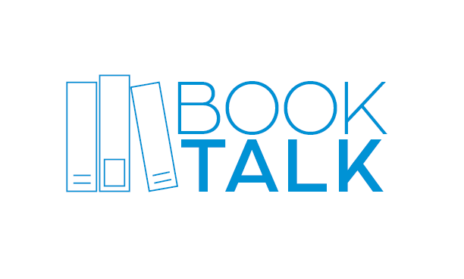AP Review Books in Review
With the end of the school year comes hot summer weather, the excessive desire to skip class and sleep, and also the pressure of AP exams for a good majority of students. These exams can seem daunting and stressful, especially with so much information crammed into a year-long course.
How is one supposed to review something learned during August? “Look back at your old notes,” some may suggest. But, there is another option rather than leafing through old notes that have finally found the light from under your bed. AP review books. They put everything from the year in simple terms for better clarification or re-teaching purposes.
AP review books can range from $15-$30, all depending on the brand. The prices vary based upon publisher and company and also if a review CD is included. Most of the books provide the buyer with at least one practice AP exam at the back of the book and some provide a separate CD for practice tests. Most classes allow students to experience and take an actual AP test from previous years in class, but if extra tests are required for studying purposes, the CD would end up being a good bang for your buck.
Despite the dilemma of dragging out extra cash for the CD or not, there are many different brands to choose from. Which one provides the most information? Which one will actually help before the exam? All exams are different so some students prefer one book over the other due to diagrams, picture models, practice tests and actual course material.
Overall, AP review books are a helpful last-minute tool to help students prepare for the exam. Make sure you buy the book that helps most in what you need, whether it be the seemingly endless multiple choice or the hand cramping FRQs. So eat a good breakfast, relax and try to flip through a review book to put all your worries aside.
5 Steps to an A: ($29.95 for the book and $19 for flash cards)
- Pro: “Rapid Reviews” at the end of each chapter.
- Con: Not much test practice in the book.
5 steps to an A offers a book with CD combination for even more exam review and preparation. Each chapter has review questions with explanations to the correct answers. For someone in a time crunch, “rapid reviews” are at the end of each chapter so it is not needed to flip through the whole book if you are running short on time.
This company also sells flash card decks offered in certain subjects for less of a cost than the book. These cards are sorted by topic but you are unable to preview the cards before buying them.
Barrons: ($18.99 for both the book and flash cards, sold separately)
- Pro: Not only highlights vocabulary, but also important people.
- Con: Flash cards would be necessary to compensate for the lack of diagrams and pictures in the review book.
Barrons not only focuses on vocabulary but also highlights important people in the subject. This is important considering that the AP test will not be a vocabulary quiz. Although important vocabulary terms are bolded or italicized, the terms are either listed in the index or defined in a glossary at the back of the book. This varies upon subject, so whether or not there is a glossary or an index can be a factor in the decision making process. There are tables to display necessary information but there are few diagrams.
If you are seeking diagrams, Barrons offers flash card sets in certain subjects with color pictures, tables, and they even throw in access to a free online exam. They can be bulky but the color pictures put them ahead of the other AP review cards that are available.
REA “All Access Book”: ($19.95)
- Pro: An online code is provided to give students access to many different tools for preparation.
- Con: A CD is not included with the book.
REA offers an “All Access Book” to help students. They provide an online code for a variety of quizzes, tests and a full practice exam and even eFlashcards. But the actual book gives a wealth of information with bolded vocab and a glossary for terms in the back. Complementary “Did you know?” and “Test Tip” blurbs are thrown in the margins, as well. All of the FRQ essays are explained in the book to try to help the student improve and compare what they wrote to what is required.
The only considerable downside to the REA “All Access Book” is that there is not an actual CD provided. But students can view this as a positive since the online code could be accessed on any type of internet device, with or without a CD drive.
REA “Crash Course”: ($14.95)
- Pro: The short points are focused more on actual concepts.
- Con: Sections are vague and almost too short.
REA offers another book, “Crash Course.” This book is significantly smaller than the others in all dimensions and, as expected, this handy book does not provide much in-depth information. All of the chapters are put into small numbered sections that are very short and to the point.
This book is focused on concepts rather than vocabulary. The points are explained briefly so you would need to refer to another source for further elaboration. They claim to have you “study only what you need to know” so that you only study the information that is tested on the exam, even though no one knows what will be on the exam. The only practice this book provides is one practice exam.
Princeton Review: ($18.99)
- Pro: Lots of FRQ practice.
- Con: Online access codes or CDs are not offered.
The Princeton Review offers the most FRQ practice in their books. The text includes bolded vocabulary but the key words are not listed until the end the chapter. None of the Princeton Review books available at the bookstore have a CD or online codes. This line of books would not be beneficial if you are looking for any additional online help. They do include practice multiple choice but the bubbling sheets include things that just seem to waste space like asking to “fill in” things like date of birth and registration number. Yes, that makes the practice test look more like an exam but the space used for that could have been used for something more beneficial for students.
Kaplan: ($18.99-$19.99)
- Pro: Review questions and FRQs specific to each chapter.
- Con: No glossary to quickly define terms.
Kaplan books vary upon the different subjects. Most of the books have at least one practice exam but they provide review questions and FRQs for each chapter. Vocabulary is bolded in the text so it is easy to see the terms for review. Diagram and “AP Expert Tips” are added in for additional help.
The downsides to the Kaplan books are the lack of a CD for extra review. There is not a glossary of terms in all books, so if you are struggling with a certain term or two, it would be hard to pin point where to look.
Your donation will support the student journalists of Hagerty High School. We are an ad-free publication, and your contribution helps us publish six issues of the BluePrint and cover our annual website hosting costs. Thank you so much!






